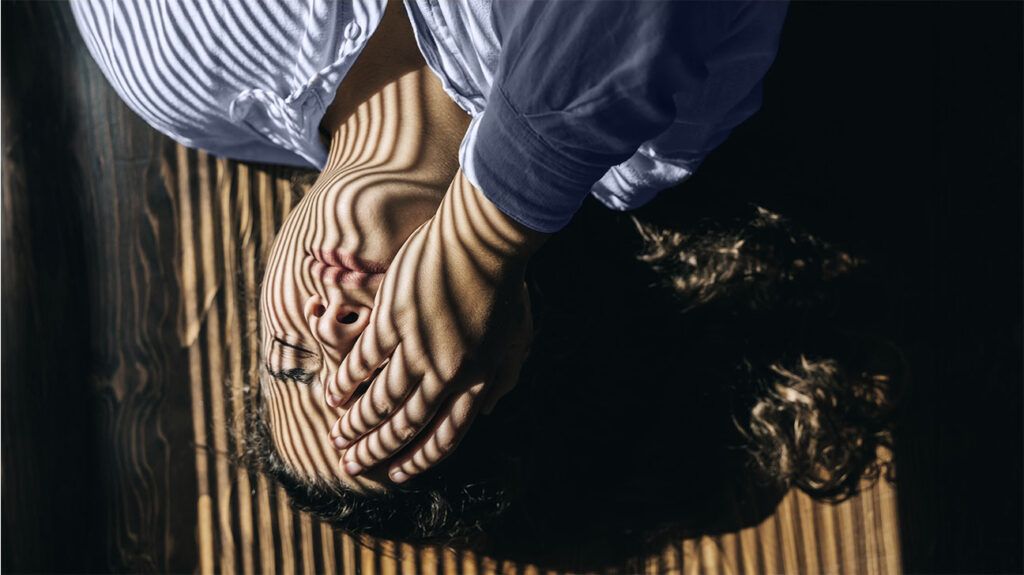Experts believe stress may make a person’s narcolepsy worse. However, there are several ways people can manage and reduce stress.
Narcolepsy is a brain condition that affects how a person sleeps and wakes up. It is a chronic condition that affects daily life.
Stress is a physical and emotional reaction people experience as they encounter life challenges. Everybody experiences some stress during their lives.
Although experts do not yet know the exact cause of narcolepsy, stress may be a possible trigger. It may also increase a person’s narcolepsy risk.
This article discusses the connection between stress and narcolepsy, other triggers of narcolepsy, and how narcolepsy affects sleep. It also outlines some tips for managing stress and getting better sleep.

Stress may be a trigger for narcolepsy symptoms.
People with narcolepsy may experience cataplexy. Cataplexy is a sudden and temporary loss of muscle control that results in weakness. It may also cause people to collapse. Strong emotions such as stress
Researchers are still investigating the cause of narcolepsy. However, nearly all people with narcolepsy who have cataplexy have
Due to this, experts believe narcolepsy
Recent studies have found that hypocretin is linked to short- and long-term stress. Long-term stress
These risk factors include:
- having a family history of narcolepsy
- sudden changes to sleep patterns
- hormonal changes, such as puberty and menopause
- inherited genetic factors
- infections, such as swine flu and bacterial infections
People can also develop narcolepsy due to certain other conditions. This is called secondary narcolepsy. These conditions involve damage to the area of the brain that produces hypocretin, and can include:
- brain or head injuries
- brain tumors
- multiple sclerosis (MS)
- encephalitis
Scientists have also found that the flu vaccine Pandemrix
Read more about how narcolepsy affects the brain.
Narcolepsy
They may:
- feel very sleepy throughout the day, despite feeling rested after waking
- have uneven and interrupted sleep
- wake frequently during the night
- fall asleep suddenly, without warning
- be temporarily unable to move or speak when waking or falling asleep
- have excessive dreaming, such as:
- dreams that come when falling asleep
- dreams just before waking
- dreams during waking
They may also experience cataplexy when awake.
Read about narcolepsy and insomnia.
Stress and sleep
Stress
The
- limiting news to twice a day
- disconnecting from phone, TV, and computer screens for periods of time
- practicing self-care, by:
- eating healthy food
- regularly exercising
- taking breaks if feeling stressed
- taking deep breaths
- stretching
- meditating
- avoiding excessive alcohol, tobacco, or substance use
- making time for enjoyable activities
- talking with trusted friends or family about concerns and feelings
- connecting with community or faith-based organizations
- recognizing when to seek help if problems continue
The CDC suggests a person
- going to bed at the same time each night
- getting up at the same time each morning, including on weekends
- having a bedroom that is:
- quiet
- dark
- relaxing
- at a comfortable temperature
- removing electronic devices from the bedroom, such as:
- TVs
- computers
- smartphones
- avoiding large meals, caffeine, and alcohol before bedtime
- being physically active and exercising during the day
Here are some questions people frequently ask about narcolepsy.
What are the three types of narcolepsy?
Type 1 narcolepsy is where a person has cataplexy and excessive daytime sleepiness. Type 2 narcolepsy is
Can stress and anxiety cause narcolepsy?
Current research suggests narcolepsy is a neurological disorder with genetic and autoimmune factors. Conditions such as anxiety are common in people with narcolepsy. However, scientists do not know if this is due to narcolepsy or narcolepsy’s impact on a person’s quality of life.
What can be mistaken for narcolepsy?
People or healthcare professionals
Narcolepsy is a chronic condition that affects how a person sleeps. Stress may trigger some symptoms of narcolepsy. It may also affect sleep quality. This in turn may make narcolepsy worse.
People can use various management techniques to reduce stress and improve their sleep quality.
